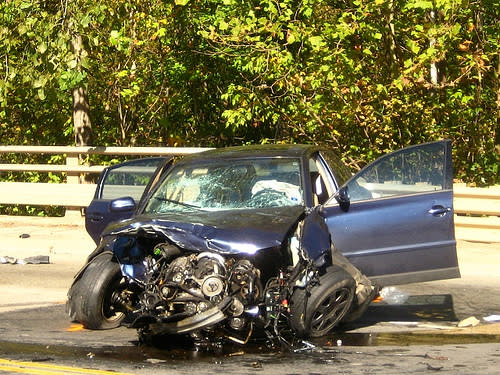Your Cheap Car Insurance May Actually Cost You Thousands More
Everyone knows the old saying about excess – too much of anything is a BAD thing. But not everyone knows that trying to save too much money on your car insurance policy’s “excess” is a risky move that can cost you thousands of dollars if you’re not careful.
Look, I don’t blame you for wanting to save every dollar you can on the cost of owning a car. If I owned a vehicle that cost as much as a waterfront home in the U.S., I’d do everything short of ramming cars off the road to steal petrol Mad-Max style in order to save money.
But I wouldn’t increase my car insurance policy’s excess UNLESS I was financially prepared to handle the cost of a claim.
What Is This “Excess” You Speak Of?
In case your insurance agent skipped the “excess” portion of your car insurance policy or you chose a higher excess when purchasing your policy online because you thought “more” was better – excess is the amount of money YOU must pay your insurer before it will cover the full amount of your claim.
For example:
If you have an excess of $500 on your policy and you get into an accident that turns your once beautiful BMW 5 Series into an abstract work of art with a $15,000 price tag (err… I mean repair bill) – you’ll only need to pay that $500 excess while your insurer covers the other $14,500.
Why Doesn’t Everyone Have a Low Excess Then?
The problem with having a low excess is that it’s expensive. That’s because most of the financial risk is on your insurer if you ever make a claim. But you shouldn’t worry too much about your insurer shouldering most of the cost in case you get into an accident – they’re getting plenty of money from you in the form of higher monthly premiums.
And that’s the reason many people choose to raise their excess because high car insurance premiums tend to eat into their budget. Unfortunately, some car owners who realize this take it a bit too far, raising their excess to the highest amount to get the cheapest premiums.
Cheaper Isn’t Always Better – It Can Cost You In the Long Run
What’s wrong with raising your excess to the highest possible limit to save money? Nothing – if you’re someone who drives an off-peak car, lives fairly close to work, drives irregularly, and has the unique ability to see into the future.
If not, it’s probably not wise of you raise your insurance policy’s excess to the absolute highest limit, even if you have the savings to pay your policy excess in the event of an accident (and if you don’t, that’s reason enough to lower your excess to an amount you CAN cover!)
I’m not saying you can’t raise your excess. I’m saying you should be smart about it and increase it to a level where you’re comfortable paying both your monthly premium and excess (should an accident happen).
The last thing you want is to end up in an accident that: A) leaves you paying that unbelievably high $3,000+ policy excess, and B) leaves you with higher premiums anyway (if you’re at fault).
If you fit into one of the following categories, you should NOT raise your policy excess to its limit:
Drivers under 26: Sorry kid, statistically, you’re more likely to be involved in an accident than someone just a few years older than you.
Drivers over 60: Sorry uncle, with all due respect, you’re more likely to have poor eyesight, health problems that affect your limb movement, and slower reaction time – factors that contribute to many accidents involving older drivers.
Rush Hour Commuters: Bumper-to-bumper /stop-and-go city traffic poses a higher risk for accidents, where even a slow speed accident can cause 1K-2K worth of damage!
Drivers Who Commute 50km+ daily: Your likelihood of an accident increases with both driving frequency and distance. Even if you’re a safe driver, there’s no guarantee that you’ll stay accident-free.
Shift Workers: Fatigue is a big contributing factor to accidents, as people who come off 12-hour shifts tend to be more fatigued than those of us working 8/9 hours daily.
Final Note: Lowering your excess will raise your monthly premium, but don’t’ fret, there are other ways you can save money that don’t involve exposing yourself to unnecessary financial risk. If you haven’t read it already, definitely read 10 Easy Ways to Reduce Your Petrol Costs.
And if you want to switch to a better car insurance policy that can save you more money, definitely check out SmartInsurance.sg.
Have you been in a situation where having a high excess cost you in an accident? Share your views with us on Facebook!
Image Credits:
InsureWish.com
Get more Personal Finance tips and tricks on www.MoneySmart.sg
Click to Compare Singapore Home Loans, Car Insurance and Credit Cards on our other sites.
More From MoneySmart

 Yahoo Finance
Yahoo Finance 
